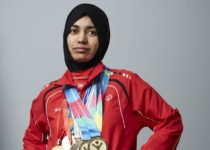His Highness Sheikh Mohammed bin Rashid Al Maktoum, Vice President and Prime Minister of the UAE and Ruler of Dubai, honoured Abu Dhabi Fund for Development (ADFD), the leading national entity for development aid, for its contribution to the UAE’s prominent status among global foreign aid providers.
The country has retained its position as the world’s largest donor of official development assistance relative to national income for the fifth year in a row.
Other national funding institutions as well as development and humanitarian organisations also received accolades at the award ceremony that paid tribute to public donors in the UAE for their efforts in providing foreign aid. Organised by the UAE Ministry of Foreign Affairs and International Cooperation (MoFAIC), the event took place at Emirates Palace in Abu Dhabi.
His Highness Sheikh Mansour bin Zayed Al Nahyan, Deputy Prime Minister, Minister of Presidential Affairs and Chairman of ADFD’s Board of Directors, accepted the award on behalf of the Fund.
Speaking on the occasion, His Excellency Mohammed Saif Al Suwaidi, Director General of Abu Dhabi Fund for Development, said: “ADFD is committed to supporting developing countries in achieving the United Nations’ Sustainable Development Goals (SDGs) and boosting the living standards of their populations. We are incredibly proud of this recognition that validates the importance of our efforts in the field of development assistance during 2017.”
He added: “With direct supervision and counsel from His Highness Sheikh Mansour bin Zayed Al Nahyan, ADFD has implemented thousands of development projects in 88 countries over the past four-and-a-half-decades, disbursing funding and investments totalling AED83 billion.”
The Development Assistance Committee (DAC) of the Organisation for Economic Co-operation and Development (OECD) has reported that in 2017, the UAE provided AED19.32 billion in development aid to 147 countries around the globe. The country’s contribution accounted for 1.31 per cent of its gross national income – almost twice the global target of 0.7 per cent set by the United Nations.







